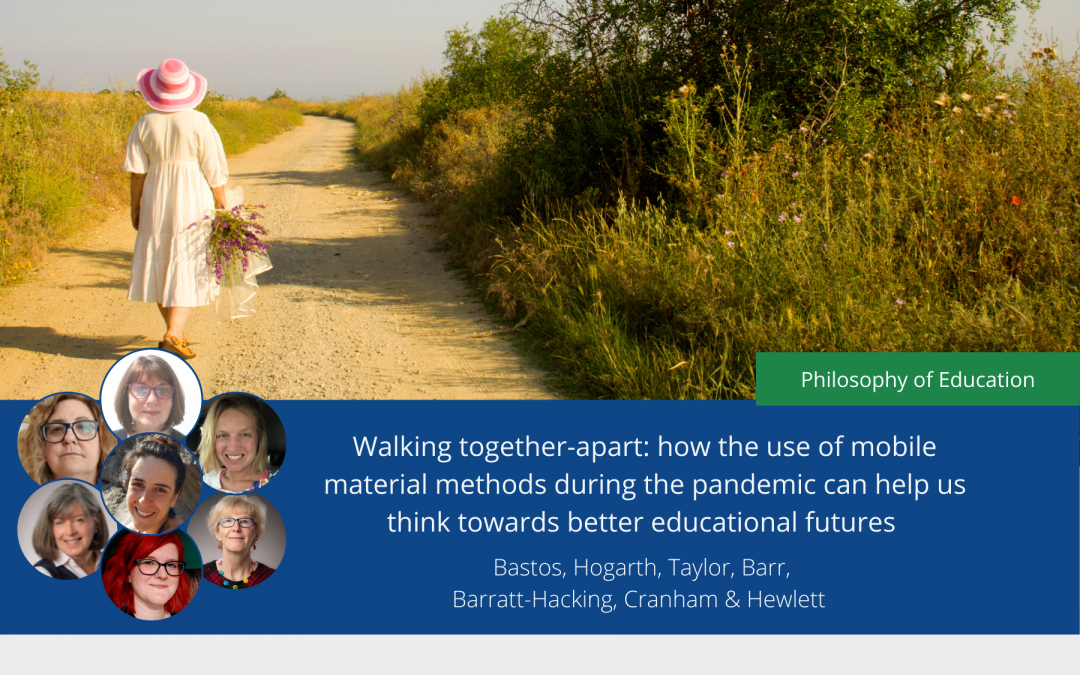An invitation: ‘Get Up and Move’
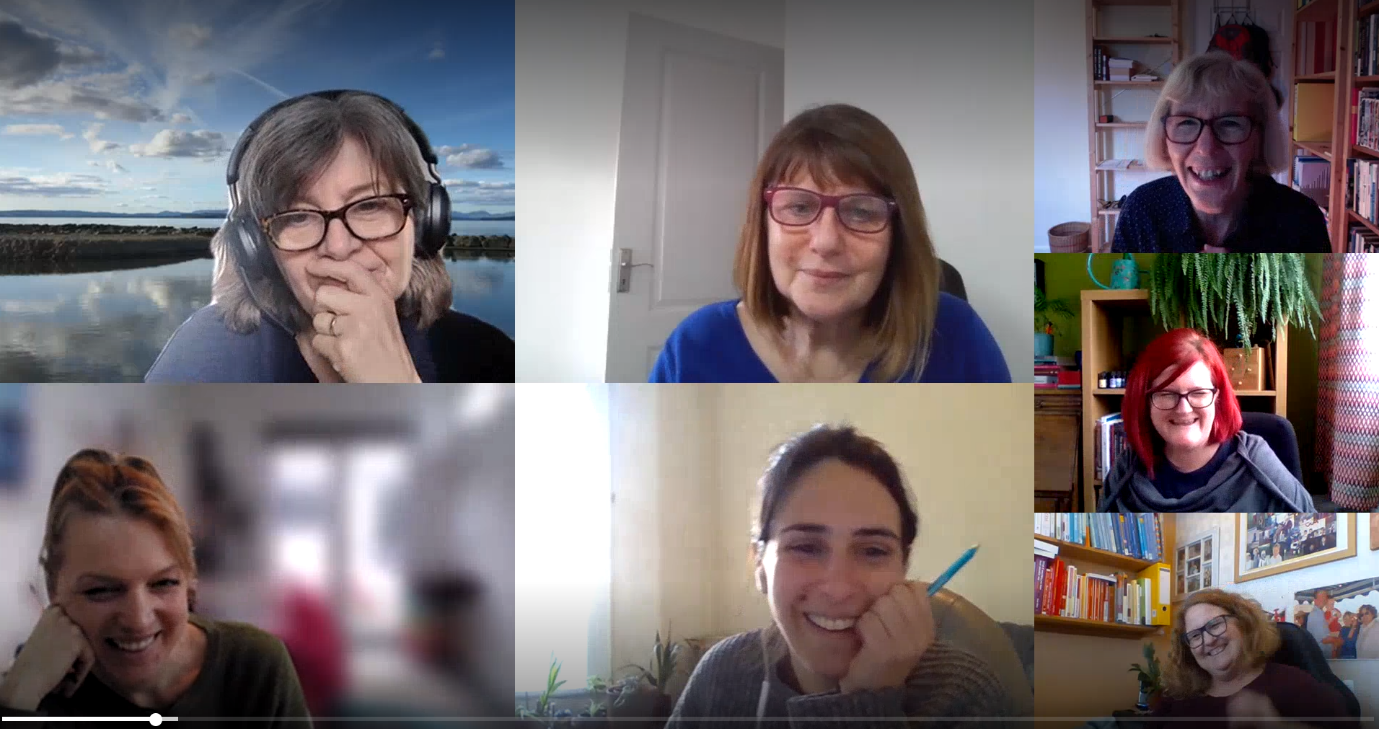
Framed by the feminist approach of Collective Biography (Gannon and Davies, 2006), we shaped a practice of walking together-apart which involved us in walking in different geographical locations at more or less the same time in relation to an agreed aim. This helped us shape walking together-apart as a mode of knowledge-making that is relational, embodied, and collaborative, and that (we think) offers the means to think and work towards better, more hopeful educational futures.
Walking as method
Walking is an embodied, mobile, materialist research methodology which challenges the positioning of language and human interaction as the central feature in research (Taylor, 2020). It creates opportunities for research that is embodied, multi-sensory, emergent, relational, situated and bound to time, context, and location. Further, walking methodology reveals how geographies and histories are shaped by colonialist practices (Springgay and Truman, 2018).
In our Get Up and Move project, we experimented with paying attention to the places and spaces where we were walking. We adopted a materially engaged and situationally immersed research positionality, allied to Karen Barad’s feminist posthumanist orientation where ‘knowing does not come from standing at a distance and representing but rather from a direct material engagement with the world’ (Barad, 2007, p.49). This methodology involves a research orientation to the not-yet-known and to knowledge as a space of possibility.
Walking together-apart
The walks
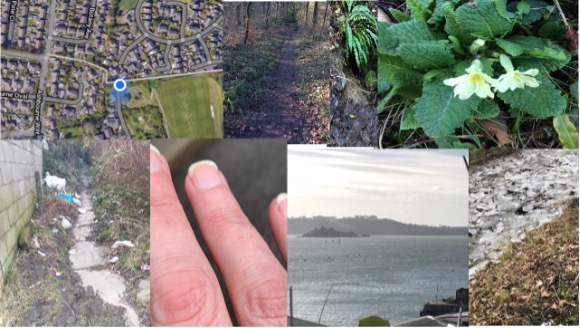
We enacted the methodology of walking together-apart in three walks: the first was in a familiar place which focused on noticing; the second was in an unfamiliar place and sought to attend to bodies and bodily sensings, and the third was at dawn focusing on the elements and atmosphere.
After each walk, we recorded individual stories in which we attended to embodied moments, collecting these in our ‘treasure chest’ (our shared online site). Later, together-apart in online group discussions, shared themes, and experiences emerged in a process of collective re-creation of memory and meaning. Through this iterative telling, listening, and writing process, particular things came to matter.
Data experimentations
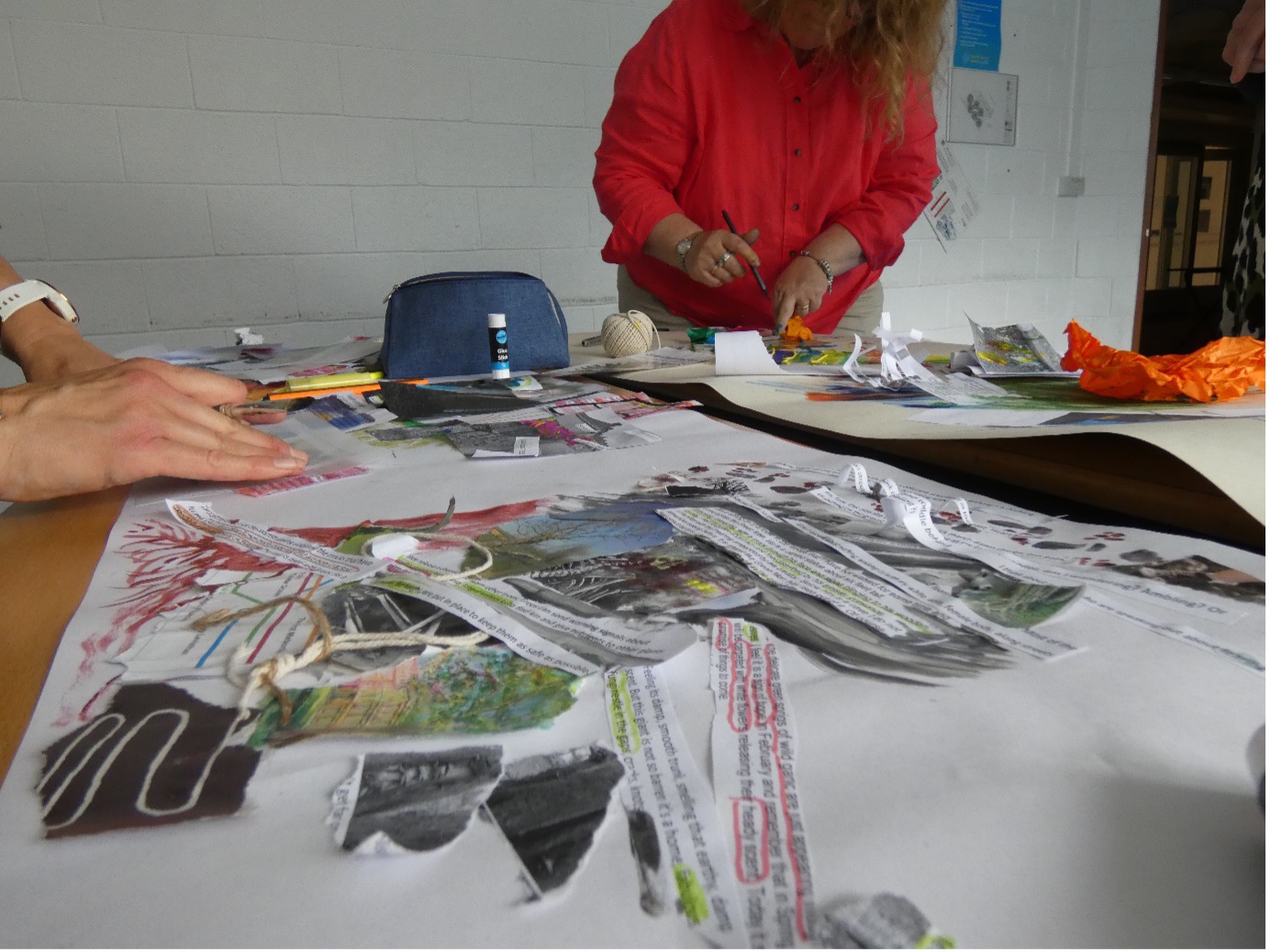
Our ongoing encounters in researching our walking insights together-apart encouraged us to engage creatively with the data. Our treasure chest encompassed multiple forms of data – photographs, videos, written text, poems, sounds, and recordings of online conversations.
In a ‘first pass through the data’ we sifted through the folder, responding to what was there. Sharing these responses led to conversations that sprawled in unanticipated ways ranging from how our bodies meet the world – cold teeth, runny nose, wet socks – to big discussions about colonialism, misogyny, violence, and poverty.
As we continued thinking, writing, talking, and crafting, certain moments resonated, providing us with themed scents to pursue and paths to wander. Our knowledge-making was rhizomic, a botanic metaphor of a plant stem which creeps underground sending out roots and shoots, and which we use, following Deleuze and Guattari (1987), to describe the complex, nonlinear, erratic and nomadic nature of knowledge production.
Our experimentations in collaborative writing (Cranham et al., 2023, f.c.), string figuring and collage, and painting with data in hybrid classrooms were swept by the affective, exhilarating processes of becoming-we, leaving us joyfully animated in nurturing collaboration.
Insights for education
Walking as a methodological practice unveiled insights to knowledge-making in the following ways:
First, such approaches are slow. They require time and space to linger in the moment and to experience and learn with the world as it is encountered.
Second, the methodological practice of attentive noticing enables us to apprehend the significant role of the more-than-human (for example, objects, animals, nature). This displacement of human exceptionalism can be life-affirming and produce more generous and inclusive research and education practices.
Third, through an ethical process of care, trust, honesty, and open collaboration, ‘I’ became ‘we’, and ‘mine’ became ‘ours’, enabling knowledge creation beyond the individual. The knowledge that emerged was transversal, becoming an affective flow across the group, materialising in shared moments of laughter, insight, and silent musing.
Fourth, embracing the unknown involved trusting something exciting would emerge and a willingness to take a risk.
Fifth, creative open-ended methods disrupt current thinking and help recast what matters in education. They reject disciplinary boundaries and goal-oriented approaches, resisting current neoliberal practices that tend to promote individualised competitive practices over collaboration.
Walking and Collective Biography helped us envisage and enact more relational, embodied, collaborative, inclusive and joyful research practices – these, we think, can help inform better educational futures for students and staff.
Key Messages
The COVID-19 pandemic enabled using online spaces to connect and do research in new ways.
Walking as a methodology offers possibilities for research that is embodied and attends to both the human and nonhuman world.
Collaborative approaches have potential to disrupt neoliberal practices that promote individualised competitive practices that dominate the academy.
Such approaches are slow and require developing care-full relationships founded on trust and ethical engagement
Other blog posts on similar topics:
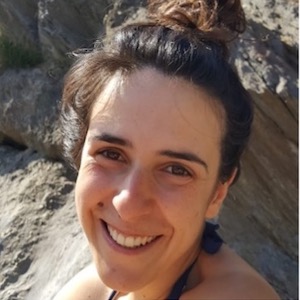
Eliane Bastos
PhD Researcher, University of Bath, Department of Education
Eliane is an Education PhD Researcher at the University of Bath (UK) interested in understanding how primary school children come to reflect their learning into the everyday through storying with objects, and how longitudinal ocean learning experiences may enable an ontological turn towards children’s understanding of the human-ocean relationship as human as ocean.
Eliane’s research is located within a relatively new field – Ocean Literacy, which is concerned with the understanding of the ocean’s influence on us and our influence on the ocean. She has been active as a practitioner in the field of ocean literacy for over 7 years working with partners in the UK and internationally to accelerate ocean literacy in society, including playing a key role as a founding member of the We Are Ocean collective and as a Board Member of the European Marine Science Educators Association.
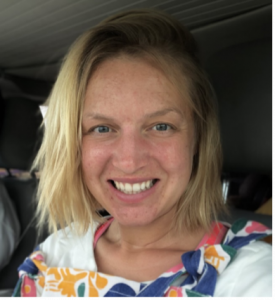
Hannah Hogarth
PhD Researcher, University of Bath, Department of Education
Hannah is a PhD researcher in the Department of Education, University of Bath. Her doctoral inquiry explores the relationship between childhoodnature encounters and play in an urban forest school.
Co-researching with young children alongside non-human nature, she is interested in finding ways to create knowledge collaboratively using creative, playful and embodied methods inspired by feminist, posthuman, relational and materialist approaches.
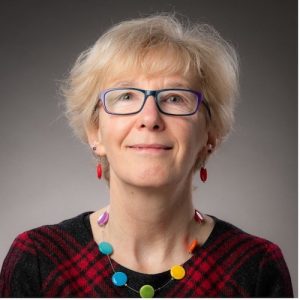
Carol Taylor
Professor of Higher Education and Gender
Carol is Professor of Higher Education and Gender in the Department of Education at the University of Bath where she is Director of Research and leads the Learning, Pedagogy and Diversity Research cluster.
Carol’s research focuses on the entangled relations of knowledge, power, gender, space and ethics in higher education and utilizes trans- and interdisciplinary posthumanist and feminist new materialist theories and methodologies.
She is currently co-leading a University of Bath Research Beacon Living Well Now and in 2050. Carol is co-editor of the journal Gender and Education, and a member of the Editorial Boards of Qualitative Research, Teaching in Higher Education, Critical Studies in Teaching and Learning and Journal of Posthumanism.
Carol’s latest books are Fairchild, N., Taylor, C.A., Benozzo, A., Carey, N., Koro, M., & Elmenhorst, C. (2022). Knowledge Production in Material Spaces: Disturbing Conferences and Composing Events. London: Routledge; Taylor, C. A., Ulmer, J., and Hughes, C. (Eds.) (2020) Transdisciplinary Feminist Research: Innovations in Theory, Method and Practice. London: Routledge; and Taylor, C. A. and Bayley, A. (Eds.) (2019) Posthumanism and Higher Education: Reimagining Pedagogy, Practice and Research. London: Palgrave Macmillan.
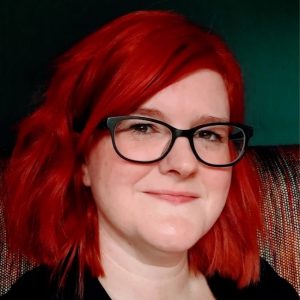
Karen Barr
PhD Researcher, University of Bath, Department of Education
Karen has taught at Sheffield Hallam University for 15 years, mainly on courses relating to education and early childhood.
She is studying for a PhD in Education at the University of Bath and the title of this research is ‘Affect and discursive-materiality in Early Childhood Studies placement assemblages’. This project considers placements as contingent and emergent assemblages of human-nonhuman forces; it explores the material aspects of placement contexts; how these material aspects come to matter discursively; and how affective forces influence students’ experiences.
Karen’s study takes up posthuman theory to investigate how placement works as a material-discursive affective assemblage and how that produces learning. Its aims are to contribute a novel way of considering placement and to make a methodological contribution through its creative research practices that attune to affective flows, rhythms, and momentary intensities, which often go unnoticed in learning events.
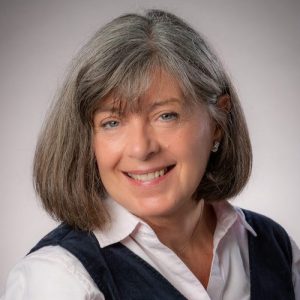
Elisabeth Barratt Hacking
Deputy Head of Department / Senior Lecturer, University of Bath,
Elisabeth has published widely in the field of environmental education and global citizenship education. She has been involved in numerous educational research, evaluation and development projects relating to childhood and environment, education for sustainability and global citizenship education with nurseries, schools, children and young people, teachers and leaders. Much of this research has employed participatory methodologies in school contexts.
Elisabeth is interested in advancing theory, policy and practice in the area of childhood and environment. With Amy Cutter-Mackenzie-Knowles and Karen Malone, she has been instrumental in creating the new concept ‘childhoodnature’ through editing the international ‘Research Handbook on Childhoodnature: Assemblages of childhood and nature research’ (2020). Most recently, the new concept, ‘relational becoming’ (with Carol Taylor, 2020) brings together work in global citizenship, environmental education and childhoodnature to rethink education in a posthumanist frame, that is, beyond anthropocentric notions which privilege (powerful) human exceptionalism.
Working with a group of interdisciplinary researchers, the ‘nature relations’ research group, Elisabeth is working on ways of embedding childhoodnature and Relational Becoming within climate change education in schools and early years settings. She is also Co-investigator of a University of Bath interdisciplinary research Beacon: ‘Living Well now and by 2050.’
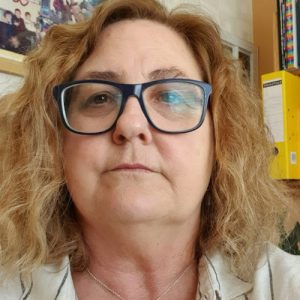
Joy Cranham
PhD Researcher, University of Bath, Department of Education
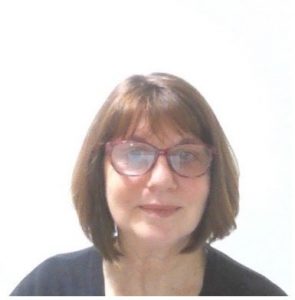
Sally-Jayne Hewlett
PhD Researcher, University of Bath, Department of Education
Sally-Jayne Hewlett has a background in working with young people aged 16-25 with learning difficulties and / or disabilities and specialist tutoring in higher education. She is currently completing doctoral research in the Department of Education at the University of Bath. Her research focus uses critical realist methodology to explore the invisible, hidden and complex realities of accessibility in higher education through the lens of academics. Collaborative writing simultaneously is congruent to Sally’s interest in innovative and accessible methodologies for knowledge production.
References and Further Reading
Barad, K., 2007. Meeting the universe halfway: Quantum physics and the entanglement of matter and meaning. Durham and London: Duke university press. Barad, K., 2007. Meeting the universe halfway
Cranham et al., 2023 (f.c.). Not mine, not yours, but ours: Collaborative writing simultaneously together-apart. In Hughes, C, Taylor, C. A., Salazar Pérez & Ulmer, J. (Eds.) The Routledge International Handbook of Research and Methods in Transdisciplinary Feminism. London: Routledge.
Deleuze, G. and Guattari, F., 1987. A thousand plateaus: capitalism and schizophrenia. Minneapolis: University of Minnesota Press. https://www.upress.umn.edu/book-division/books/a-thousand-plateaus
Fairchild, N., 2021. Pedagogies of place-spaces: walking-with the post-professional, PRACTICE, DOI: 10.1080/25783858.2021.1968279 https://www.tandfonline.com/doi/full/10.1080/25783858.2021.1968279
Gannon, S. and Davies, B., 2006. Doing collective biography: investigating the production of subjectivity. Maidenhead, England: Open university press. https://link.springer.com/chapter/10.1007/978-94-6091-615-1_10
Springgay, S. and Truman, S.E., 2018. Walking methodologies in a more-than-human world. Abingdon: Routledge. https://www.routledge.com/Walking-Methodologies-in-a-More-than-human-World-WalkingLab/Springgay-Truman/p/book/9780367264956
Taylor, C. A., 2020. Walking as trans(disciplinary)mattering: A speculative musing on acts of feminist indiscipline. https://www.researchgate.net/publication/341470739_Walking_as_transdisciplinarymattering. In Taylor, C. A., Ulmer, J., and Hughes, C. (Eds.) (2020) Transdisciplinary Feminist Research: Innovations in Theory, Method and Practice. London: Routledge. pp. 4–15. https://www.routledge.com/Transdisciplinary-Feminist-Research-Innovations-in-Theory-Method-and-Practice/Taylor-Ulmer-Hughes/p/book/9780367500511

